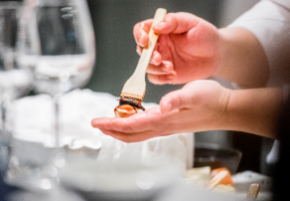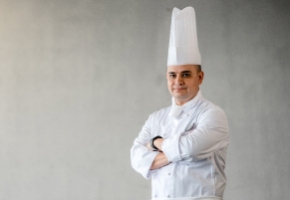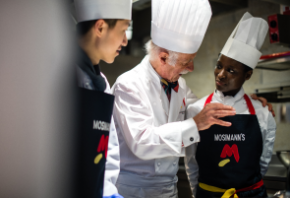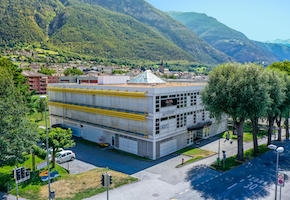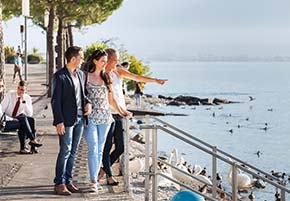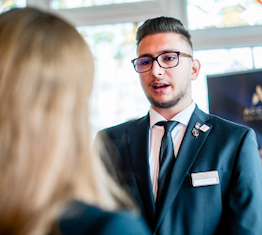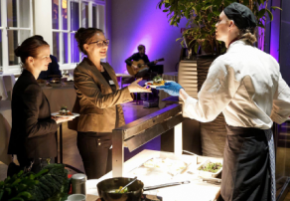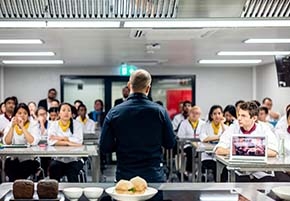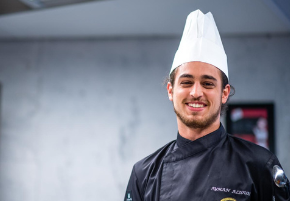- About
- Programs
- Campus Life
- Career Services
- Admissions
- News & Events
- Alumni
Trending in India Part II: Catering startup shakes up culinary market
23-year old alumna, Tanuvee Agarwal is taking the Delhi dining scene by storm with her catering company Atticus.
In a society where influential female chefs are still a rarity, this young woman is not shying away from promoting sustainability and leaving her mark on the industry.
In this two-part series, we talk to Tanuvee about her path to becoming a chef, her memories of Culinary Arts Academy Switzerland, her experience of working at a Michelin-starred restaurant, and the joys and challenges of running her own business.

How did you find your first clients?
Word of mouth! No matter how big social media is these days, getting your first clients in the food & beverage industry is still down to good old word of mouth marketing. I started with some freebies, then tapped into my parents’ friends circle.
My first client was someone who lives three houses down the street from us, but who I had actually never met before in my life. I posted about my new venture in our neighbourhood chat and invited people to give it a try. It got the ball rolling. That was over six months ago.
Diwali was a peak season for us. Every other day we had parties for 50 people and sometimes we were booked every single day. It's actually surprising that we keep going forward because India is going through a major recession.
Do you think that being a young woman prevents some opportunities?
Yes, I do. When clients see a young person walk in, a lot of the time they try to take me for a ride.
“
I've had a lot of instances where clients asked me to bring my parents to discuss business with them. Now I am used to dealing with that, I have learnt my way around objections and know how to get clients.
”
I come to meetings professionally dressed. I bring my A game. I have to look very mature and confident, otherwise it doesn't work.
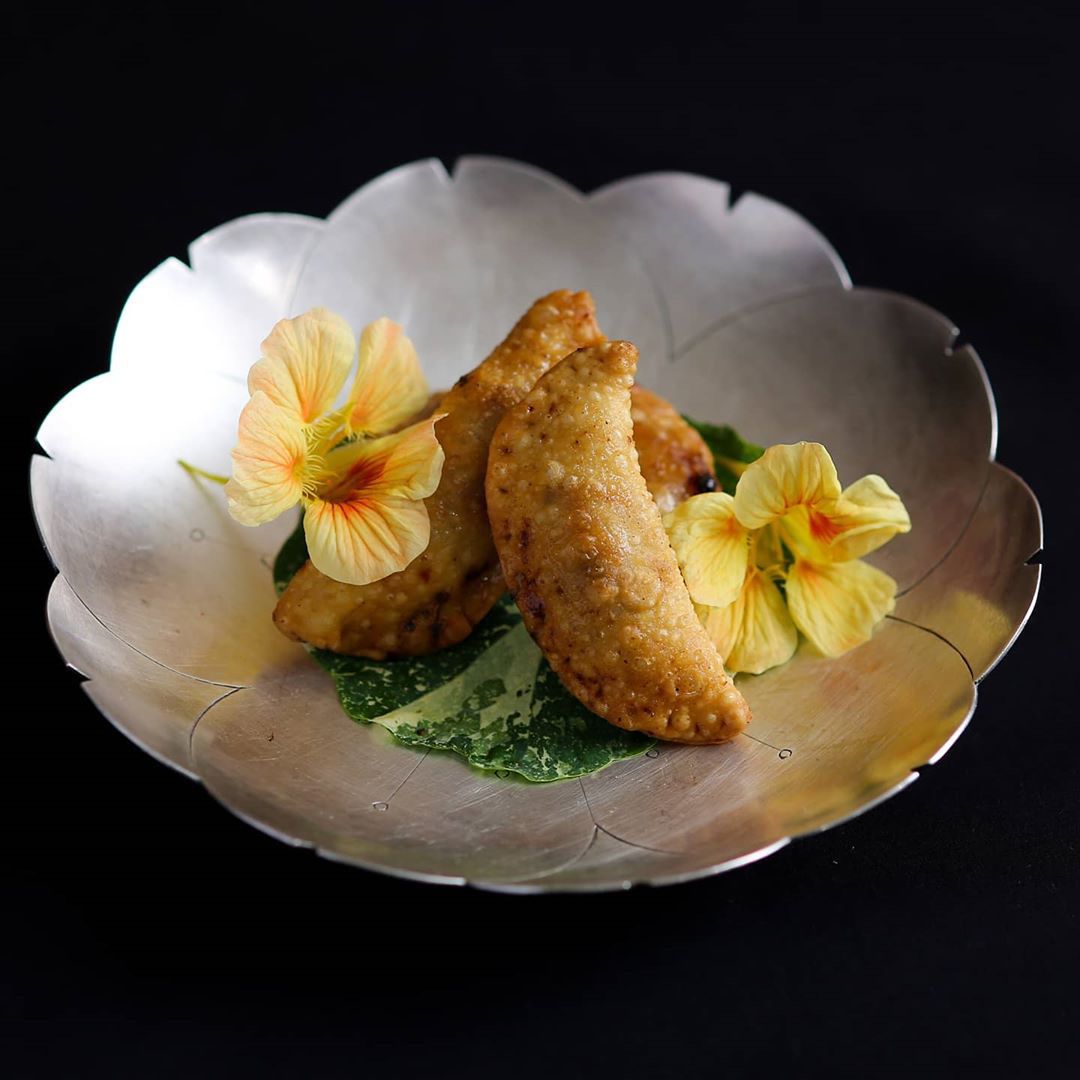
What was it like to hire your first employee?
My staff consists of myself and a chef I’ve hired to help with the cooking and serving, plus a part-time dishwasher.
Interviewing was a nerve-wrecking process! I have always been on the other side, so it was an interesting experience. I had to evaluate many different aspects. I interviewed around 10 people and chose someone who had drive and some work experience. The key factors were being well-spoken and well groomed, which is important in catering because you have a lot of client-facing work.
Tell us about the sustainability aspect of what you do
Oh, we have lots going on in this department!
1. Biodegradable plastic solutions
Our government has recently passed a plastic ban. However, things are changing very slowly.
“
We've taken the initiative and started a collaboration with producers and suppliers of biodegradable packaging in India. We are working on biodegradable solutions for things like waterproof equipment that we can use in the kitchen so that we cut down on plastic consumption.
”
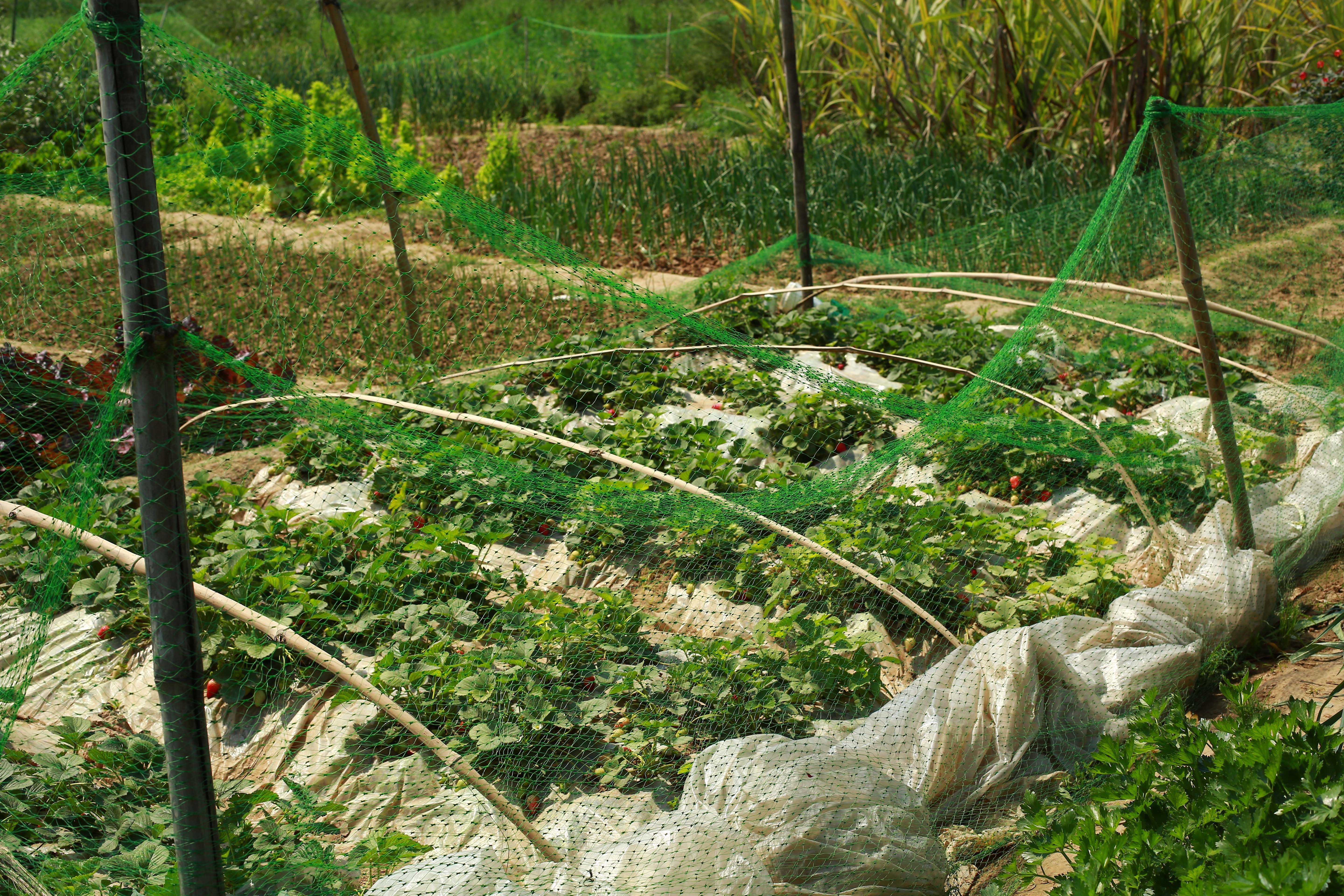
2. Our own farm
We have a farm where we are growing all of our produce, setting the entire cycle ‘from farm to table’ in motion. We also buy an entire animal and use every last bit of it as part of the ‘nose to tail’ approach.
3. Preserving food
Another thing we do is use the Nordic concept of preserving foods through dehydration. We have a huge collection of different powders that we can use as a garnish and it's something that looks fancy but is just the best way to preserve something.
4. Composting
We do a lot of composting. Everything is composted and used as manure for our farm to grow vegetables. Our vegetables are all organically and naturally grown. No chemicals.
5. In-house water treatment system
My favourite sustainability feature in our kitchen is the built-in water treatment system that allows us to reuse water. And the best part is, it came with the building that we are renting space in. No one was using it because they didn't know how, so we just hired an engineer to get it working and started using it.
Did you have any prior experience with farming?
Not really, although I did grow up around kitchen gardens. Now we have a farm on the outskirts of Delhi. We like to try new things, like trying seeds from other regions, or growing mushrooms, or figuring out a way to grow berries in India without a greenhouse.
I'm learning the basics from my mom who is really into farming. She keeps going for different agricultural seminars and I tag along with her. It's really interesting!
What skills and knowledge from Culinary Arts Academy are you using in your business?
Pretty much everything had an impact on me, from the way the school managed itself to what we learnt in the classroom.
“
Apart from acquiring the cooking skills which I use every day, one major thing I've picked up is how to organise workflows in a more systematic way.
”
I also remember how we used to complain about the uniform and dress code at school because it restricted us as individuals, but today I'm implementing it in my workplace because it actually creates the discipline you need.
Tanuvee Agarwal graduated from Culinary Arts Academy Switzerland in 2017 with a Bachelor of Arts in Culinary Arts.
Find out more about what other CAAS Culinary Arts Academy Switzerland Alumni are up to today.
#Alumni
